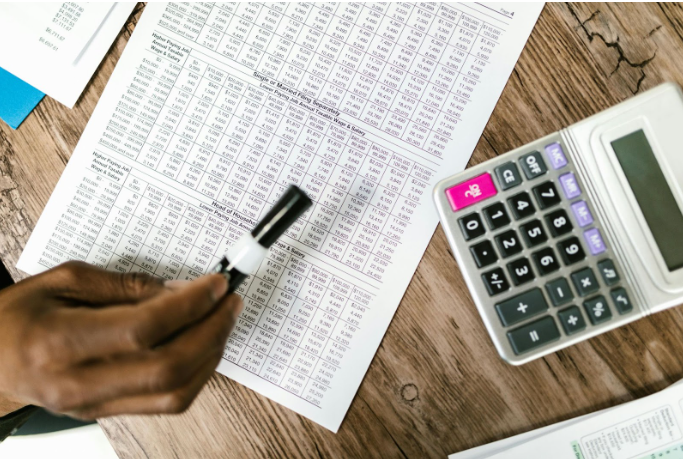Are you ready for the UK’s digital tax revolution? Making Tax Digital (MTD) is set to transform how landlords manage their taxes, requiring digital record-keeping and tax submissions.
With new mandates coming into play, landlords must understand what MTD means for them, especially as deadlines approach. While the transition to digital tax filing may seem overwhelming, it aims to simplify tax management and speed up the process.
If you’re unsure about how to prepare or what changes to expect, don’t worry — we’ve got you covered. Here’s what every landlord needs to know about MTD compliance.
What is Making Tax Digital (MTD) for Landlords?
The UK government is committed to digitising its tax system, and Making Tax Digital is at the heart of this project. HMRC has split the rollout into MTD for VAT and Income Tax, with MTD for Landlords falling under the latter.
HMRC is launching this initiative to help landlords and other business owners streamline their tax filing processes and improve accuracy. Adopting MTD allows landlords to meet compliance standards and benefit from a more efficient and transparent tax filing experience.
What Does MTD Mean for Landlords?
For landlords, this new system means a shift from manual record-keeping to compatible software. If you earn property income above the threshold, you must maintain digital records of all rental earnings and expenses and submit updates quarterly through HMRC-recognised software.
The benefit? It eliminates annual tax return stress and provides better visibility over your tax position throughout the year. You can save time, reduce human error, and ensure compliance with HMRC’s regulations. So, it’s not just a requirement—it’s a step towards a simpler, streamlined tax experience.
For landlords using agents or property managers, MTD still applies. You remain responsible for ensuring accurate digital records, even if someone else handles your property finances. Review agent-provided reports regularly to ensure compliance and avoid discrepancies during quarterly submissions.
When is the Deadline for MTD for Landlords?
Want to avoid unnecessary penalties? Understanding the deadlines for MTD compliance is the first step to a stress-free tax filing experience.
It’s worth noting that the timelines vary with income thresholds. If your property income exceeds £50,000 annually, you must comply with MTD by April 6th, 2026. A second phase of the rollout will extend the requirement to landlords earning more than £30,000 annually, starting from April 2027.
Landlords with an income below the £30,000 threshold are exempt for now. However, the government has clarified that a review of the needs of such businesses is ongoing to understand how MTD can be shaped to align with their needs.
So, regardless of your current annual income, planning for this transition as early as possible is crucial to avoid rushed decisions. But how do you prepare as a landlord? Let’s take a look below.
How to Prepare for MTD as a Landlord
Preparing for MTD starts with ensuring your processes are ready for digital compliance. As a landlord, you need HMRC-approved software to record rental income and expenses, such as property repairs, letting agent fees, or mortgage interest payments.
Organise your financial records digitally and keep receipts for all property-related transactions. To plan, estimate your tax liabilities, prepare yourself financially, and save enough for quarterly submissions.
If you manage multiple properties, it would be wise to adopt software that tracks income for each property separately. This approach will help avoid confusion and errors in your transactions.
As part of the preparation, HMRC allows all qualifying businesses and individuals to test the MTD system by signing up voluntarily. Leverage this opportunity and identify challenges early, allowing you to comply when MTD becomes mandatory fully.
How to Calculate Income for MTD for Landlords
MTD income calculation requires landlords to keep precise digital records of all property-related earnings and expenses. Start by identifying your total rental income, including rent payments from tenants and any additional earnings, such as service charges or furnished property fees.
Deduct allowable expenses like maintenance costs, property insurance, letting agent fees, and mortgage interest (where applicable). You can use an income tax calculator for these calculations or invest in digital tools such as Xero to automatically calculate based on your records, helping you track real-time profits and liabilities.
It’s essential to separate income for each property if you own multiple rentals. This ensures accurate submissions and avoids errors when reporting through MTD-compliant software. For complex cases, working with a tax professional can help ensure your income calculations meet HMRC’s requirements.
Conclusion
Making Tax Digital for landlords marks a significant step towards simplifying the UK’s tax system. While transitioning to digital tax compliance may seem challenging, it offers landlords better financial oversight, improved accuracy, and reduced stress.
Understanding the deadlines, adopting HMRC-approved software, and preparing early allows you to transition smoothly and avoid penalties. Whether you manage one property or several, embracing MTD will future-proof your tax processes and make quarterly submissions hassle-free.








